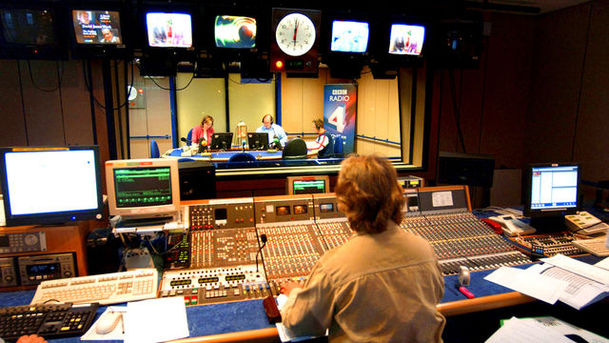Today - 24/09/2009

Presented by John Humphrys and James Naughtie. Scientists say they have developed a vaccine that reduces the risk of infection by HIV - the virus that causes Aids - by more than 30 per cent. The vaccine has been tested on 16,000 volunteers in Thailand in a programme financed by the US military. Dr Seth Berkley, chief executive of the International Aids Vaccine Initiative, says he is excited by the findings. The number of complaints against the police has risen by eight per cent over the past year, the Independent Police Complaints Commission says. Nick Hardwick, chairman of the Commission, discusses why one complaint in every four was for 'neglect of duty' - officers being slow or ineffective. Repeated requests from Britain for a formal meeting between President Barack Obama and Gordon Brown were rejected by the White House, it has emerged. Political editor Nick Robinson examines the state of the 'special relationship' between the two countries. Europe correspondent Jonny Dymond reports on the well-mannered election campaign in Germany and the attempts from current Chancellor Angela Merkel, who has led the country in a coalition for the last four years, to win enough votes to form a right-wing coalition. Can computer games be used to get children interested in maths? Marcus du Sautoy, professor of the Public Understanding of Science at Oxford University, explains his case for exploiting websites like Facebook to help children engage with maths. The BBC has been told of new research linking toxins found in the air systems of commercial airliners and neurological damage suffered by pilots. Reporter Angus Stickler considers claims by researchers who say those affected have developed chronic medical conditions after being exposed to contamination from jet engine fumes. One of the greatest rivalries in the history of chess is being resumed as Garry Kasparov takes on Anatoly Karpov in the Spanish city of Valencia. Columnist Dominic Lawson and chess writer Malcolm Pein discuss whether the 12-game rematch - in a form of the game called speed chess - shows a move away from the traditional chess match. Thought for the day with Canon Lucy Winkett, of St Paul's Cathedral. The results of the largest ever human trial of an HIV/Aids vaccine have been revealed in Bangkok after seven years of trials involving more than 16,000 people. Correspondent Alastair Leithead and HIV specialist Professor Jonathan Weber discuss what the results show. A strategy to protect the health of England's soils and ensure they continue to store carbon dioxide will be published by the government. Correspondent Sarah Mukherjee and Defra chief scientist Bob Watson discuss how the quality of soil can be improved. PG Wodehouse's witty prose, poking fun at the English upper classes, has won him a small army of fans that continue to celebrate his writing more than 30 years after his death. Evan Davis visits a small London bookshop to discover there is more to the literary humorist than Jeeves and Wooster. The report on the events of Bloody Sunday has been delayed until March 2010, more than 12 years since the tribunal was set up. Northern Ireland Secretary Shaun Woodward discusses his concern at the impact on the families of those who lost loved ones. The BBC has been told of new research linking toxins found in the air systems of commercial airliners and neurological damage suffered by pilots. Lord Patel, of the House of Lords' science and technology committee, examines claims that those affected have developed chronic medical conditions after being exposed to contamination from jet engine fumes. A dinner lady who told a parent his seven-year-old daughter had been attacked at school in Essex has lost her job after a disciplinary hearing. Margaret Morrissey, of website Parents Outloud, and Mick Brookes, general secretary of the National Association of Head Teachers, discuss the treatment of Carol Hill, who was sacked for a breach of confidentiality. The UK's largest horde of Anglo-Saxon gold has been discovered buried beneath a field in Staffordshire. Dr Kevin Leahy, an archaeologist with the Portable Antiquities Scheme, discuss the collection of 1,500 pieces which, experts say, is unparalleled in size and may date back to the 7th Century. The great famine of 1932 and 1933 in Ukraine, known as the Holodomor, may have killed as many as 10 million people. Some believe that it was a deliberate act of genocide. Correspondent Nick Higham reports on the Royal Shakespeare Company's world premiere of a play about the famine, written by a Ukrainian writer. Complaints against the police have risen by eight per cent, according to figures released by a watchdog. John Feavyour, spokesman for the Association of Chief Police Officers (Acpo), and Simon Reed, vice-chairman of the Police Federation of England and Wales, discuss why one complaint in four was for 'neglect of duty'.